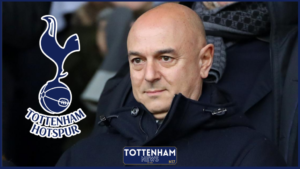A few years ago, around the same time people started getting extremely animated by things such as net spends and expected goals, there came a school of emerging thought that challenged the traditional narrative of footballing performance, arguing – in effect – that the influence of a manager was vastly overstated. Matches are won by the best players, so the hypothesis went, and the best players cost money, and thus a club’s wage bill was a far more reliable predictor of success than whichever bloke happened to be sitting on a padded car seat in the dugout.
In this reading, the era of the all-powerful manager – the patriarchal visionary who oversaw everything from tactics to contract negotiations to the temperature of the away showers – was gone, if it ever really existed. Football’s centre of gravity had shifted away from the manager’s office towards the sporting director, the medical department, the boardroom and the fund markets. And so the game’s enduring fixation on managers – talking about them, listening to them, hiring and sacking them – was an outdated affectation, a fundamental misunderstanding of how the game itself functioned. Austere and exhaustive academic articles were commissioned on the subject. Long, boring data-heavy books were written and occasionally even purchased
As a piece of empirical analysis, the theory of the powerless manager made a lot of sense. It explained why managers would often enjoy a “bounce” after joining a new club, before regressing to the mean. It explained why a manager might enjoy success at one club before failing spectacularly at the next: because none of this actually means anything, right? Most of all it seemed to explain how Zinedine Zidane could lead one of the world’s richest clubs to three Champions Leagues without ever actually seeming to do anything at all.
But as with many theories, there was a large gaping hole in the middle of it. Perhaps “blind spot” is a more accurate term. Because essentially it comes down to what you regard as the ultimate meaning of football, the reason it is worth your time. Is it the pursuit of performance, or a ritual and a rite? Is it primarily a destination, or a journey? Is it defined by victory and defeat, or the feelings it creates along the way? The reason for posing these questions here is that in only one of these realities is Ange Postecoglou a brilliant manager.
Maybe this sounds a little like damnation by faint praise. But if in fact we subscribe to the theory that the manager is basically a marginal influence, then it must follow that there are hardly any brilliant managers in the world. Pep Guardiola probably, Jürgen Klopp maybe, and everyone else is sort of bobbing around at varying levels of competence. Postecoglou’s own career, from Australia to Japan to Scotland, seems to have oscillated between periods of mediocrity and periods of clear success. Technically and tactically, he seems to know what he’s doing. But then so does virtually everyone these days.

And this is the intractable difficulty in trying to assess the worth of a manager. In an age where everyone is playing roughly the same kind of high‑tempo vertical football, sending their scouts to the same places, working off roughly the same sets of data, where everyone has pristine training pitches and a hydrotherapy pool, where exactly is the space for a coach to be a meaningful point of difference? It boils down, in large part, to stories and projections. To salesmanship, communication, oratory, personal relationships. To how you can make people feel.








